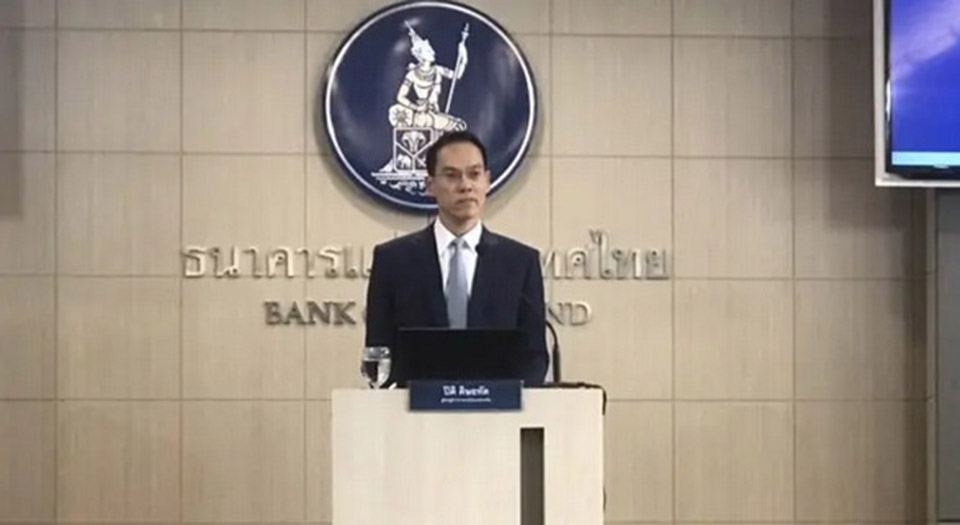
The Bank of Thailand’s Monetary Policy Committee has decided to keep the policy interest rate at 2.50 percent, with the Thai economy projected to expand by 2.4 and 3.2 percent in 2023 and 2024, respectively.
Mr. Piti Disyatat, Secretary of the MPC announced the outcome of the meeting on Wednesday that the Committee voted unanimously to maintain the policy rate at 2.50 percent.
The Thai economy overall continued to recover, despite some slowdown in merchandise exports and related production. Growth is expected to be more balanced in 2024 and 2025, supported by domestic demand, tourism sector, and a recovery in merchandise exports.
Inflation should increase next year in line with the economic recovery and El Niño-related supply pressure. With output continuing to recover toward potential, the Committee deems the current policy interest rate conducive to keeping inflation sustainably within the target range, fostering long-term macro-financial stability by preempting the build-up of financial imbalances, and ensuring sufficient policy space in light of uncertain outlook. The Committee thus voted to maintain the policy rate at this meeting.
The Committee projects growth of 2.4 and 3.2 percent in 2023 and 2024, respectively. The growth projection that accounts for the government’s digital wallet scheme is 3.8 percent in 2024, compared with the previous assessment of 4.4 percent.
Headline inflation is projected to stay within the target range, at 1.3 and 2.0 percent in 2023 and 2024, respectively. The projection that accounts for the digital wallet scheme is 2.2 per cent in 2024, relative to the previous assessment of 2.6 percent.
The lower headline inflation this year owes in part to the last-year high base as well as temporary factors such as energy price subsidies and lower-than-expected raw food prices.
Meanwhile, core inflation excluding the digital wallet scheme is expected to be 1.3 and 1.2 percent in 2023 and 2024, respectively. The Committee is attentive to risks from higher food prices due to El Niño and a potential increase in global energy prices arising from the Middle East conflicts. 819 (TNA)






